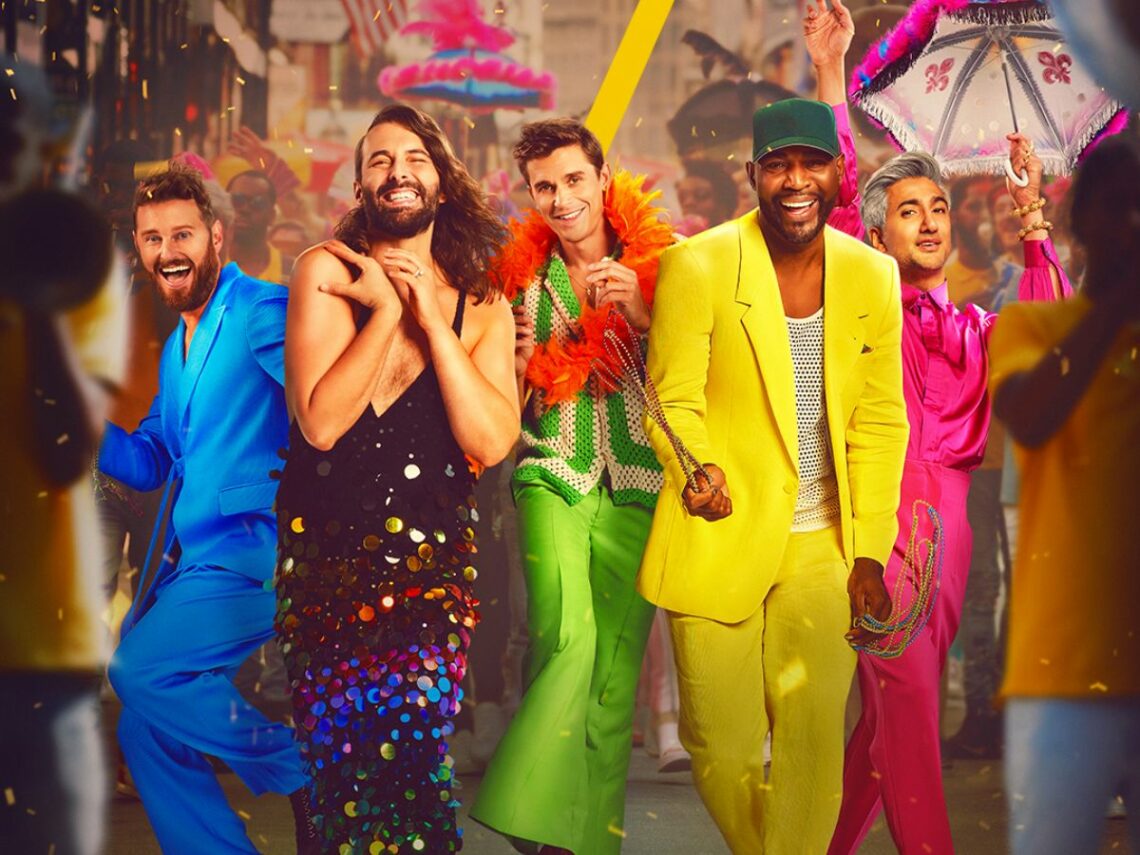
What ‘Queer Eye’ has meant to the world
There are shows that entertain, and then there are shows that leave a lasting imprint. Queer Eye on Netflix did both. What started as a heartfelt reboot quickly became one of the most quietly transformative shows of the last decade, not because it made people look better, but because it helped them feel seen.
The concept was simple: five experts helping one person overhaul their life. But from the very first season, it became clear this was not just about better clothes or nicer homes. The real glow-up was internal. What the show offered gently and without judgment was self-worth in a world that often teaches us to shrink, which felt revolutionary.
There was no fixing on Queer Eye. The ‘Fab Five’ never walked in with pity. They walked in with curiosity, warmth, and a genuine desire to understand. They met people in their mess (emotional, physical, and spiritual) and treated them like they were already enough. And somehow, in just a week, they helped each person see that, too.
Over the years, it stopped feeling like a show and started feeling like a mirror. Not always comfortable, but always kind. A reminder that transformation is not about changing who you are. It is about coming home to yourself.
It gave queer joy a global stage
In most mainstream TV, queer characters are sidekicks or cautionary tales. Queer Eye flipped the script on that. It centred queer people not in tragedy but in joy, humour, and care. The ‘Fab Five’ weren’t just experts, they were role models, goofballs, mentors, friends, and unapologetic versions of themselves.
For queer viewers, it was healing to see their identities reflected with so much love. For straight viewers, it was disarming in the best way: an invitation into a world where queerness was vibrant, layered, and completely normal.
The show’s success across countries and cultures proves that authenticity, not sameness, is what creates connection.
The show redefined what masculinity could look like
Few shows have done more to gently undo toxic masculinity than Queer Eye. Men who had spent years pushing down emotions out of fear, shame, or habit were given space to open up. And they were met not with laughter but with support.
There were episodes where fathers learnt to reconnect with their children, where veterans processed grief, and grown men cried over being told “I’m proud of you”. These were the moments that lingered as they challenged generations of conditioning in just a few scenes.
Queer Eye taught self-worth through the smallest acts
You don’t have to tear down a house to feel like a new person. Sometimes, all it takes is learning how to cook one meal or waking up and making your bed.
The show never pushed perfection and rather honoured progress. A little structure, a little pride, and slowly, people started showing up for themselves. Not because someone told them to, but because they remembered they mattered.
That message reached viewers, too, especially those watching from messy bedrooms or hard chapters of their own.
It crossed borders with softness, not spectacle
Queer Eye was not just an American show. Its emotional language was universal. When the ‘Fab Five’ visited Japan, they approached every story with cultural humility. They asked, they learnt, and they adapted, not just for show, but because respect was the whole point.
Whether helping a quiet artist in Tokyo or a Black lesbian farmer in Georgia, the team listened before they led. That care built trust, and it reminded viewers that growth doesn’t look the same for everyone.
It made empathy feel like a superpower
The show never relied on shock value. There were no fights, no forced drama, and no villain arcs. And yet, it held attention better than most reality TV. Why? Because it felt safe. It reminded people what happens when you hold space instead of judging, when you ask better questions, and when you celebrate softness instead of scorning it.
That energy radiated through screens and into lives. Fans didn’t just watch it. They applied it to conversations, relationships, and even to how they spoke to themselves.